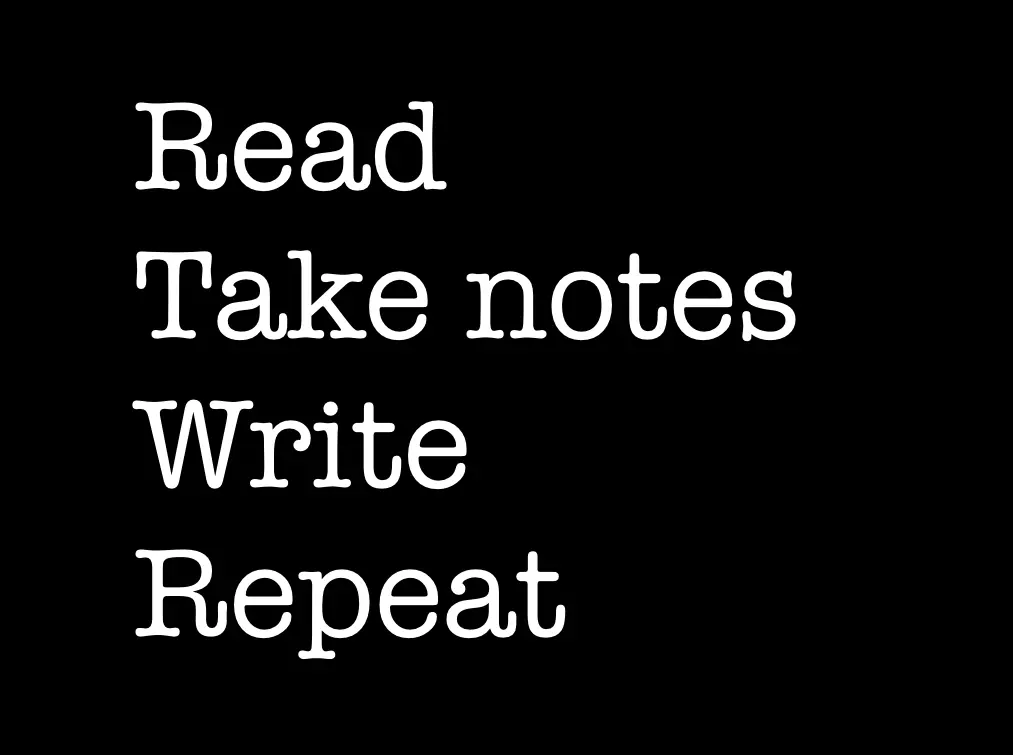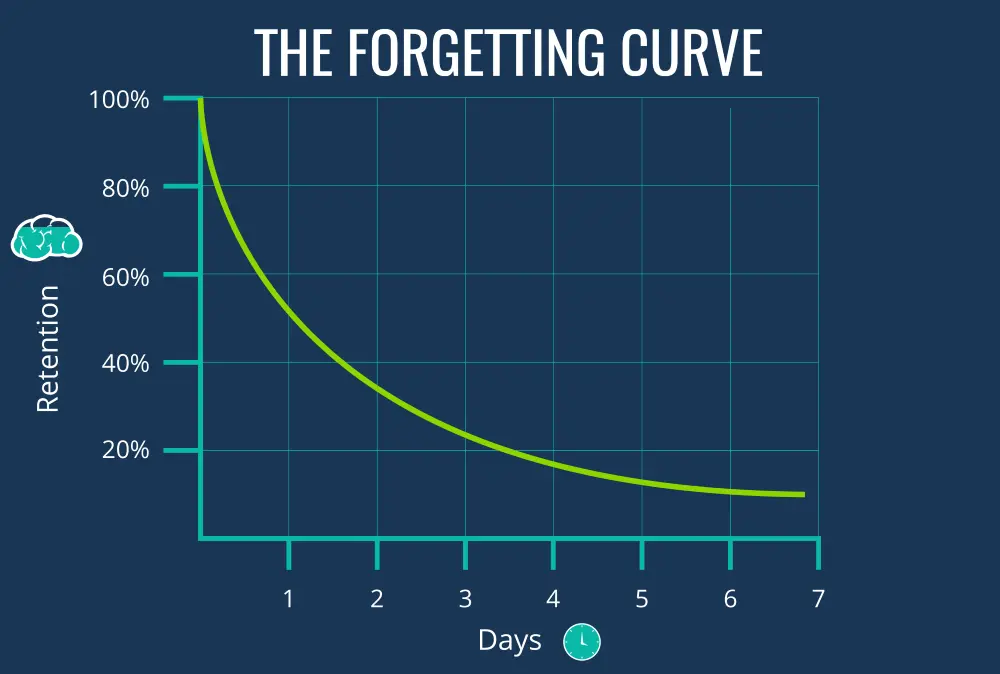Writing is Learning: How I Learned an Easier Way to Write
I had been approaching writing all wrong.
I viewed writing as solely about sharing original content with useful teachings. Technical posts demanded personal projects, requiring significant time and effort. Life lessons expected months, if not years, of experience with anecdotes and insights.
This made creating content difficult. Naturally, publishing regularly was challenging too.
How do I think about writing now?
“Writing is not what follows research, learning, or studying. It is the medium of all this work” - How to Take Smart Notes (Sönke Ahrens)
Chancing upon this quote made me realise writing is not just for sharing. It is also for learning and thinking. (Furthermore, not all writing needs to be original; more on this later.)
Writing lets you see your thoughts on paper (or the screen). You can organise, edit, rearrange for better flow, and trim the fat. This lets you clarify your thinking, extends memory, and exposes gaps in knowledge. Thus, writing helps you learn and think better.
If writing is about learning and thinking, then writing should start before the act of writing.
This post is addressed to myself from three years before, with the intent of making writing more enjoyable. My view of writing has changed. Instead of just writing, it is now reading (consume) -> note-taking (collect) -> writing (create). The key difference is having note-taking connect my reading and writing habits.

Reading
Read consistently. Don’t wait for a quiet chunk of time at night or on weekends to dive into a book. Those 10 - 15 minutes while you’re having breakfast, queuing, or commuting add up to hours each week.
Nonetheless, there are some books (e.g., heavy technical, self-improvement) that do require significant thinking and reflection. It is difficult to sneak these books into 10-minute pockets. You might also be too drained to read them after work.
How do you read consistently then?
Read three books at a time. My three books would be a heavy technical or self-improvement book, a lighter biography or non-fiction narrative, and a lightest fiction (e.g., sci-fi, fantasy).
Heavy books require significant cognitive energy and uninterrupted time to process—save them for weekends, or weeknights when you’re not as exhausted.
Can’t read a heavy book? Go for one of your lighter options instead. These fit well into 10-minute pockets, ensuring you’re always reading, every day.
Read with the intent to write. When you’re reading to learn, don’t just passively consume content. Consciously think how you would write about what you’ve learned. A similar approach is to (mock) prepare to teach the material to others.
Reading with the intent to write helps you focus. What are the key ideas and insights? What are the open questions for exploration? This helps separate the chaff from the wheat as extraneous details and fluff fall away.
(By the way, most books can be summarised as a single key idea (i.e., introduction and conclusion), with layers of details (i.e., chapters) wrapped around it.)
Note-taking
Reading—on its own—for learning, is incomplete. To learn the material better, you need to take notes. Taking notes helps you organise the information (in your way) and add it to your knowledge tree. Having notes for reference also makes writing easier.
If you want to remember, take notes. Here’s how the typical forgetting curve looks like. It doesn’t look optimistic. After seven days, your memory of the material drops to 10%.

Ebbinghaus' forgetting curve (from growthengineering.co.uk)
If you don’t actively take notes, have some kind of flashcard system, or apply what you read, you’re likely to forget it.
Organise your notes for it to be helpful. My previous approach involved book/paper/article summaries in Evernote.
While this helped refresh my memory without going through the actual book, it was difficult to find related ideas or material. Each summary was a disparate piece of information, preventing me from building my knowledge tree.
To resolve this, I adopted a Zettelkasten. It’s too much detail for this post, but here’s a brief overview of the approach:
- As I read and come across an idea or insight, I write it down on an idea card with a few sentences about the idea.
- Next, link the card to other relevant cards, creating an idea -> idea link.
- Each card then goes into a topic box containing similar cards on the topic. This creates a topic -> idea link.
Having the Zettelkasten makes it easier to organise and review what I’ve read. Want all the ideas on a topic? Go through the topic box. Want an idea relevant to the current one? Go through the linked cards.
Update: More on my note-taking process in the next post.
Writing
Here’s how my previous writing experience looked like:
- Stare at computer screen
- Brainstorm ideas from previous projects/experience
- Stare at computer screen
- Convert jumbled thoughts into words
It was like squeezing blood from stone. It made me dislike writing. Here’s what I would have told myself to make writing more enjoyable.
Writing is not solely about original, breakthrough ideas. Having this unrealistic expectation made it difficult to write—I dismissed many ideas and topics.
Here’s Mark Twain:
“There’s no such thing as a new idea. We simply take a lot of old ideas and put them into a sort of mental kaleidoscope. (…) We keep making new combinations indefinitely, but they are the same old pieces of coloured glass that have been in use through all the ages”.
Thus, don’t give yourself the undue pressure of writing only original content. Build on the ideas of others while adding your learnings and ideas to it.
Write based on your notes. There is no shame in referring to your notes—and borrowing material from other writers—when you write.
“Good writers borrow, great writers steal.” - T.S. Elliot
When writing about a topic, look up your notes in your topic box. What have other thinkers wrote about them? What do you agree or disagree on? What are the open questions? How can you add to the discussion?
This ensures you’re considering the body of literature as you write. It also makes writing easier, where you don’t have to start from scratch.
Writing begins before you write. I used to think writing started with the first sentence typed. I was wrong.
It should be clear from previous sections that writing starts with reading and taking notes, similar to how you would write an academic paper. (I hope you vaguely recall the process of writing papers in college). Don’t start with only a blank sheet of paper.
Writing is not the outcome of thinking—it is thinking. Ever wondered why writing is hard? It’s because you have to think hard.
Before writing, I reviewed my notes and knowledge tree on the relevant material. While writing, I discovered gaps in my understanding. This led to more research and learning. After a first draft, I had to organise the ideas, prune the unnecessary, and edit the language to ensure my thoughts are conveyed correctly.
Through this, I clarified my thinking and furthered my learning. As a bonus, I now have an essay that can be shared easily. Others can read it to understand my views and provide feedback.
Key Takeaways
Reading, taking notes, and writing are not separate activities—they make up a (virtuous) cycle. As you write, you discover more you need to read and learn.
Try it. The next time you read (non-fiction), consciously think about how to take notes and teach someone else the material. The next time you write, use your notes to put together an outline, upon which you can add your ideas and views.
References
- How to Take Smart Notes (Sönke Ahrens)
- How to Make Yourself Into a Learning Machine
- The ultimate guide to reading a book a week for your career
- How to Take Smart Notes: A Step-by-Step Guide
- How To Take Smart Notes: 10 Principles to Revolutionize Your Note-Taking and Writing
- How to take smart notes (Ahrens, 2017)
- Writing, Briefly
- Dr. Jordan B. Peterson’s 10 Step Guide to Clearer Thinking Through Essay Writing
Thanks to Yang Xinyi, Gabriel Chuan, and Marianne Tan for reading drafts of this.
If you found this useful, please cite this write-up as:
Yan, Ziyou. (Mar 2020). Writing is Learning: How I Learned an Easier Way to Write. eugeneyan.com. https://eugeneyan.com/writing/reading-note-taking-writing/.
or
@article{yan2020note,
title = {Writing is Learning: How I Learned an Easier Way to Write},
author = {Yan, Ziyou},
journal = {eugeneyan.com},
year = {2020},
month = {Mar},
url = {https://eugeneyan.com/writing/reading-note-taking-writing/}
}Share on:
Browse related tags: [ writing learning ] or
Join 11,100+ readers getting updates on machine learning, RecSys, LLMs, and engineering.